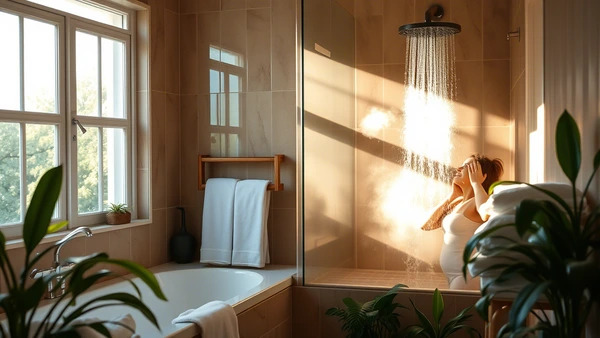Showering is more than just a way to stay clean—it’s a powerful tool that can influence your mood, sleep, skin health, and overall well-being. But when is the best time to take a shower? According to experts, the answer depends on your personal needs and lifestyle. Let’s explore what science and wellness professionals say about optimal shower times and how features like walk-in baths can enhance the experience.
Morning Showers: A Fresh Start to the Day
If you’re someone who needs a boost to start the day, morning showers could be ideal. Experts suggest that a shower in the morning—especially a cooler one—can increase alertness, improve blood circulation, and even stimulate creativity. Dermatologists also recommend morning showers if you tend to sweat at night or have oily skin, as it helps cleanse the pores and start your day fresh. For professionals, students, and early risers, a brisk shower can act as a mental reset button, helping to clear the mind and prepare for the day’s challenges. Adding aromatherapy or citrus-scented soaps can amplify these energising effects.
Evening Showers: Wind Down and Destress
On the other hand, if relaxation and better sleep are your goals, evening showers might be a better choice. Showering at night, particularly with warm water, helps to reduce cortisol levels and triggers the body’s natural drop in temperature, which signals the brain that it’s time to sleep. Sleep specialists often recommend this routine for people who have trouble falling asleep or winding down after a long day.
Warm showers—or even better, a relaxing soak in walk in baths—can soothe tired muscles, relieve joint pain, and promote mental calmness. Walk-in baths, with their deep seats and easy access, are especially helpful for seniors or individuals with mobility challenges. They combine comfort and safety, offering a spa-like experience right at home.
The Skin Health Perspective
From a dermatologist’s perspective, the timing of your shower may depend on your skin type and daily habits. For example, if you wear makeup or work out in the evening, showering before bed is crucial to remove sweat and grime that can clog pores and lead to breakouts. However, those with dry or sensitive skin may benefit from morning showers followed by a gentle moisturiser to lock in hydration throughout the day.
Experts also advise limiting your showers to 5–10 minutes and avoiding very hot water, as it can strip the skin of its natural oils. Regardless of when you shower, using mild cleansers and finishing with a nourishing lotion can keep your skin healthy and balanced.
Read Also: Nourishing Oils for Taper Fade Hair Care
When Lifestyle Determines Shower Time
In reality, the best time to shower also depends on your schedule. Parents might prefer showering in the morning before the household wakes up. Athletes or gym-goers often need to shower after a workout, regardless of the time of day. If you live in a warm climate or work in a job that gets you dirty, evening showers are more practical. Walk-in baths offer flexibility for all kinds of routines, as they allow for a long, comfortable soak at any time. Whether it’s early in the morning or late at night, having the option to sit back and relax can turn an ordinary hygiene task into a therapeutic ritual.









